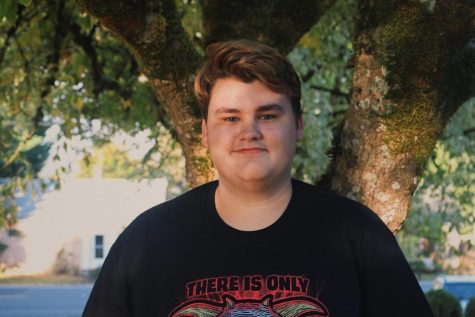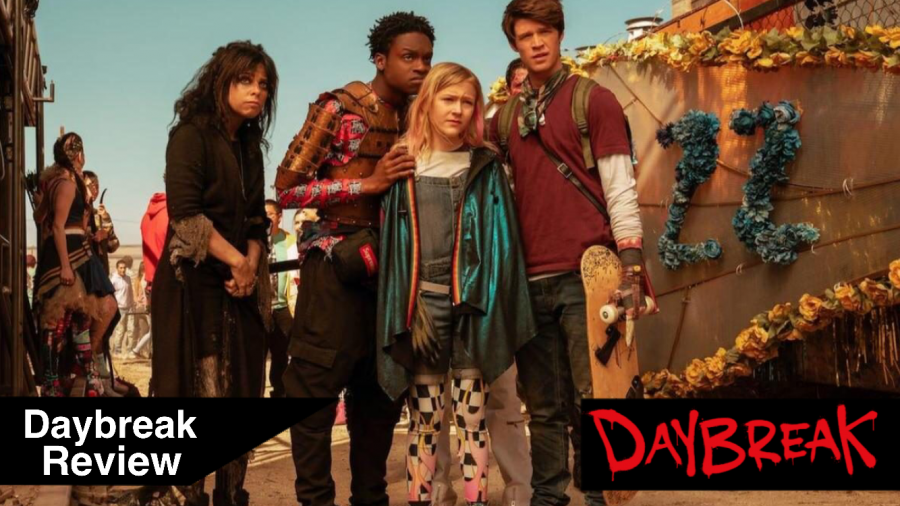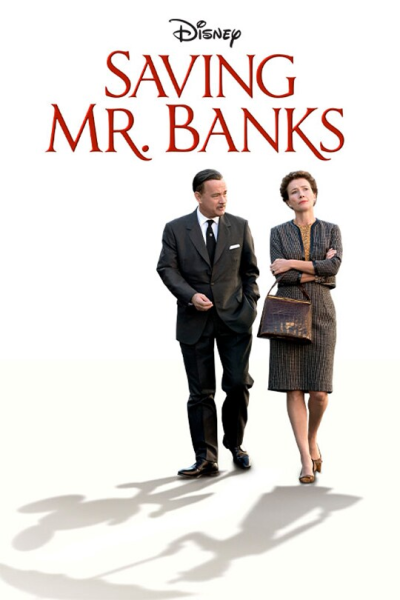Daybreak: A Clever, Underrated Series with Lots of Heart
At a glance, Daybreak seems like a generic, immature post-apocalyptic TV series, and that’s what I thought before I started it. I figured the show would have very little to offer, and I wouldn’t care to watch anymore.
But I stuck through the first episode and by the end, I was intrigued enough to keep watching. The characters were unique, the world they were surviving in was accidentally stylish and fascinating, and the premise is probably the most unique I’ve ever heard for a post-apocalyptic series.
The general plot, with minimal spoilers, is that chemical warfare caused all adults to become “ghoulies”, Daybreak’s slightly more interesting version of zombies. It’s quickly apparent however, that ghoulies aren’t the main threat of the show, but instead are the other teenagers, who have formed tribes similar to social groups you’d find in a stereotypical high-school.
The second episode is when the show really starts to pick up. Josh, the “main character”, ends up crossing paths with Angelica, a 13-year-old genius/drug lord, and Wesley, a former high-school bully turned pacifist samurai. These three make for a really strong main cast, but the side characters are what truly fills out the show.
It’s difficult to talk about a lot of them without spoiling anything, so I’ll focus on a few. There’s Eli, a teenager who took control of a local mall and Baron Triumph, a costumed cannibal who roams the streets of California (where the series is set). Baron Triumph is one of my favorite characters in the show and the twists with him made for some of my favorite moments. There are plenty of other side characters, a lot of which get lots of screen time to grow and develop, and some that even get to be the primary focus of an entire episode.
Some examples of this are the former principal of the high-school, William Burr (played by Matthew Broderick) or Turbo, a star high-school football player who goes crazy and becomes the leader of the jocks, the tribe that took control of the school.
Despite the cast playing seemingly generic character archetypes, they all provide incredible and complex performances that really break the characters out of the molds audiences are used to, and combined with the generally excellent writing, give us some of the most unique characters I’ve seen in a post-apocalyptic show.
The world is also fascinating. Set in California, the show utilizes oranges and frequently heavily saturated colors to mix into an accidentally stylish look for a genre which generated an idea that the colors of post-apocalyptic shows have to be gray, brown and black.
There are a few elements to Daybreak that stand out, not only in its genre, but in all of television. Firstly, it’s one of the few shows that frequently breaks the fourth wall, talking directly to the audience to allow the viewer a better and deeper understanding of what’s happening in a character’s head or in the world around them. Additionally, these fourth wall breaks are actually funny, well-written and work well in the show, something that other shows using this tactic sometimes struggle at.
This is a tactic that most notably recently, the Deadpool movies have utilized, and while it doesn’t fit all forms of media, makes for a unique, fun and helpful addition to the shows it’s in. Secondly, Daybreak also quite frequently jumps back and forth between the present and flashback scenes of varying times in the past.
Generally, this tactic is a cheap method of storytelling, often used for little more than easy outs of character exposition that doesn’t have to connect to the main story. Daybreak uses them in their typical way, exposition, but also directly connects flashback elements and plot points back to what’s happening in the current time of the story.
Most pieces of post-apocalyptic media never or very occasionally use flashbacks in their storytelling, but the technique works really well for Daybreak in particular, as it allows us to understand how the characters and the world have changed so fundamentally.
While I touched on it earlier, I feel the fact that certain very prominent side characters get to be focused on in their own episodes (to be clear, the subplots of those episodes still contribute to the overall story) is something that more shows need to employ. There are multiple characters in Daybreak that, had they not received their own episodes, I probably wouldn’t have cared as much about them. This is a great way for a show to expand more deeply on its side characters without only focusing on the main cast, all while still adding to the central plot.
Despite all that it does well, Daybreak still has its flaws. While there aren’t a lot of problems, the few it has are fairly significant. A lesser problem it has is that sometimes, the humor doesn’t land all that well, and can be pretty immature at times, and not just because it’s a show primarily about teenagers.
The biggest issue with Daybreak is that the love interest of the main character Josh, named Sam Dean, is that she’s only featured in flashbacks until about episode 5, and when she does come about, it’s not for very long, and the way she’s written isn’t great, so I found myself not caring for her as much.
It’s difficult to tell whether it’s bad or good writing, if she’s supposed to be arrogant and pushy, or if she’s just poorly written. A large amount of Josh’s actions both before and during the apocalypse come as a direct result of Sam. If she was a well-written character, that would be a massive positive to the show, but she’s not.
Thankfully, most of the time, what Josh does and the effects of his actions on the larger world is interesting enough that it’s dependency on a mediocre character allows it to barely skirt by.
Overall, Daybreak’s strongest points are its characters and the bright, vibrant world it creates, two things that stand out as unique in the realm of post-apocalyptic shows.
When I first started watching Daybreak, I expected an uninspired, trope-infested show that functioned largely as a retread of ideas explored many times before. And in a way, that’s exactly what it critiques. Daybreak is a show that knows it’s living in a cliched genre, with characters that seem stereotypical on a surface level, but it uses the preconceived notions the audience creates to pull a bait-and-switch with its characters, starting them off very stereotypical, but then evolving them in fascinating and deep ways.
For it’s few significant flaws, Daybreak is a show that stands out as incredibly unique in the ultimately cliche, bland genre it lives within. The protagonists, antagonists and everyone in between that inhabit the world make it a truly interesting world, coupled with the fun, punchy writing and well-placed breaks of the fourth wall, all infuse together in a satisfying story that answers most of your questions, and absolutely leaves you wanting more.
Daybreak is rated TV-MA and is currently streaming on Netflix.

I am a Senior in high school. My hobbies include writing fictional stories, playing video games, drawing, and taking photographs. My favorite of those...






